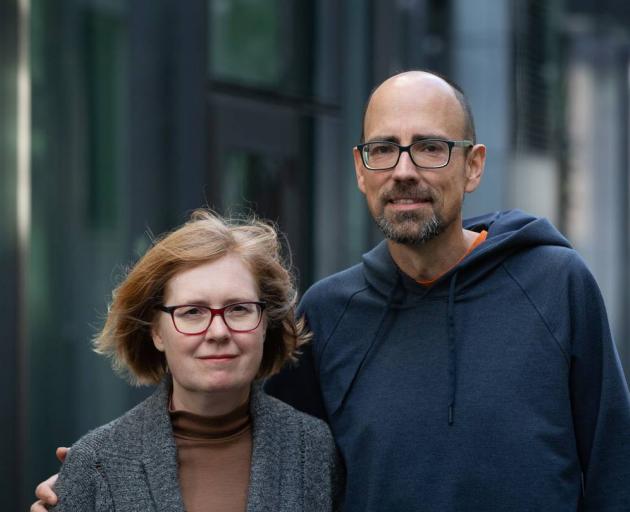Spike in sex addicts linked to Covid pandemic

For eight years Michael Taylor lied to his wife about having a sex addiction.”I hid it until I couldn’t hide it any longer,” Taylor told the Herald on Sunday.
The now 50-year-old Whangārei father was addicted to porn, and despite promising his wife he would stop viewing the material, he was “hooked”.
“I felt so much shame and fear about losing my family.”
Now Taylor wants to break down the stigma of sex addiction – which experts say is a rising problem, with counsellors inundated with clients seeking treatment since the Covid pandemic last year.
Taylor’s sex addiction first became a problem when he was 29-years-old and was dating his now wife, Lisa, in Canada.
He said he was looking at pornography four times a week for two hours at a time. Experts say porn is a driving force behind the rise in addiction.
“At first I didn’t realise it could be an addiction but I told Lisa about it and she wouldn’t tolerate it at all so I said, ‘That’s fine, I won’t do it anymore’,” he said.
Sex addiction was a deal-breaker for Lisa because she had grown up with her own father battling it, she said.
“For me it meant affairs, betrayal and domestic violence and I didn’t want that,” she said.
But as much as Taylor wanted to stop, he couldn’t and instead kept it to himself for more than eight years into their marriage.
“I hated it but I was hooked on it… it was like I was a split person,” he said.
Three times during their marriage Lisa asked him if he was still watching porn and it wasn’t until the third time he decided to come clean.
“I literally walked away and cried for three hours,” she told the Herald.
“I felt like it was the end of our relationship and that was a big deal. We had a 7-year-old daughter together.”
Lisa was ready to end their marriage but then Michael insisted he was seeing a specialist and was determined to overcome his addiction.
That was the day they had shipped their furniture to New Zealand where they planned to spend the rest of their lives together.
“I told him he had six weeks because that’s how long we had before we were meant to be moving,” Lisa said.
His turning point was realising that porn wasn’t the problem but a really bad solution which created separation and drove his sexuality in a bad direction, Taylor said.
“I realised how much my perception of the world was distorted… that turning point was also about learning to be comfortable with discomfort.”
Sex addiction was how Taylor dealt with anxiety but ironically it made him more withdrawn and disorganised, he said.
One of the misconceptions about sex addiction, he said, was that it was enjoyable.
“I would prolong anticipation so much that the climax would actually be an anti-climax… connection is way better than a false high.”
When the couple arrived in New Zealand in 2010, they discovered there was no support available to sex addicts.
That’s when Lisa decided to make a career switch from marketing to a counsellor specialising in sex addiction. Now, she helped about 30 clients a week from across the globe – some were addicts and others were partners of addicts.
But, she said, there was still a massive shortage of counsellors with the expertise to help sex addicts.
She said more specialists and more effective regulation of porn sites was needed, especially when it came to minimising the risk to children.
“The porn children as young as 10 have access to is really scary. It can be violent and damage their understanding of healthy sexual relationships.”
Counsellors have told the Herald on Sunday they are being inundated with people seeking help for sex addiction since the Covid pandemic last year.
Counsellor Andrew Connolly said people needing urgent help were having to wait three weeks for an appointment which was often too late.
“It breaks my heart because it takes a lot for someone to put up their hand and ask for help and you need to grab them while they are in that vulnerable place otherwise they just close up again or move further into that addiction,” he said.
